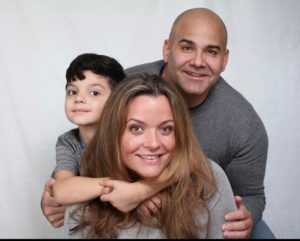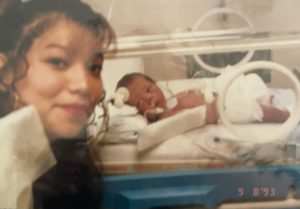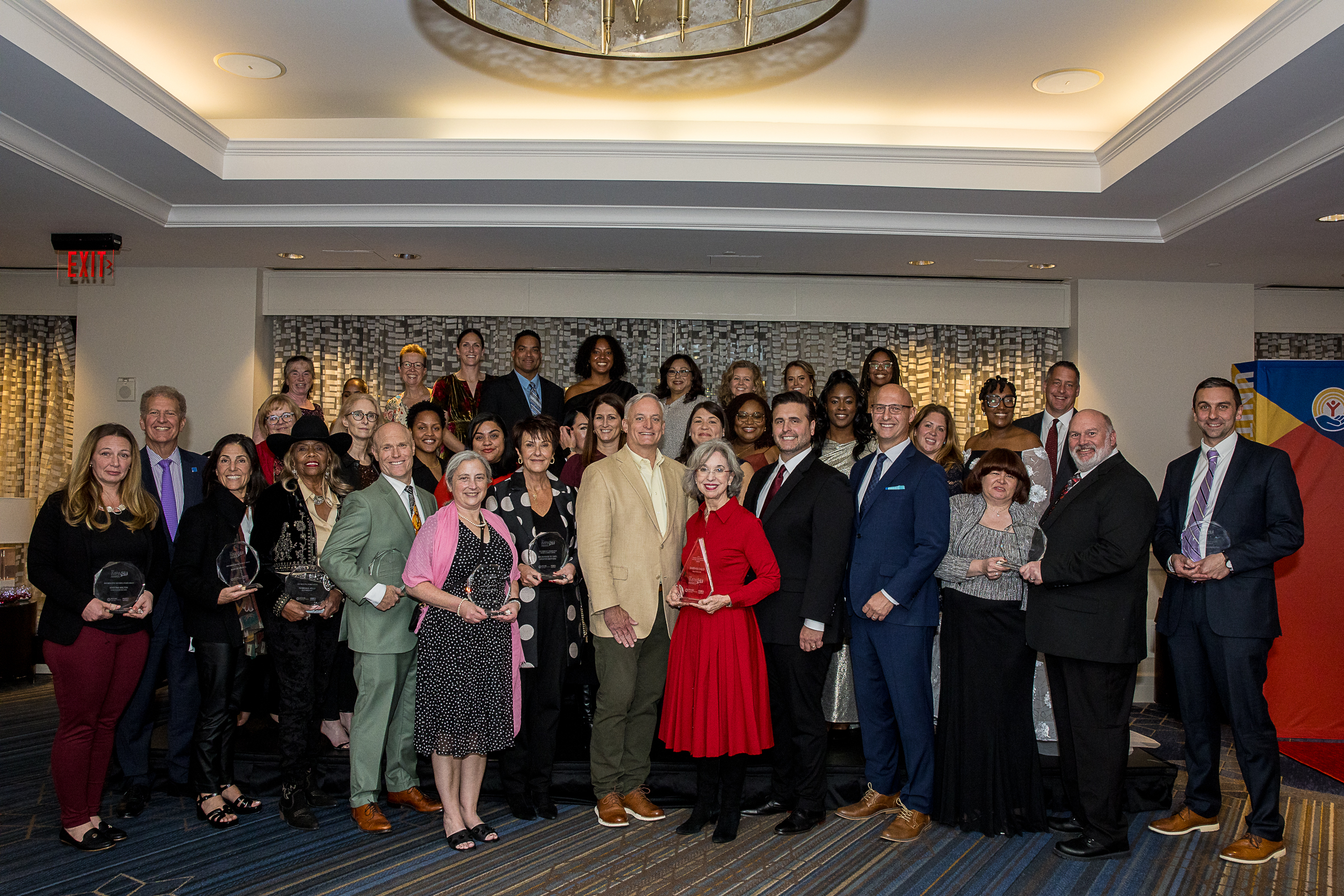New research: 48 Percent of People with Disabilities in Connecticut are Living in Financial Hardship
New report reveals that federal poverty data significantly undercounts how many people with disabilities are struggling to afford the basics.
ROCKY HILL, CT (July 28, 2022) – The number of people with disabilities in Connecticut who struggle to afford the basics is far higher than federal poverty data indicates — 48 percent compared to 16 percent — according to a new report from United Way of Connecticut and its research partner United For ALICE.
In 2019, while 16 percent of residents with disabilities were deemed in poverty, 32 percent — twice as many — were ALICE (Asset Limited, Income Constrained, Employed). ALICE households earn more than the Federal Poverty Level but less than what it costs to live and work in the modern economy. Combined, 48 percent of Connecticut residents living with disabilities were below the ALICE Threshold, with income that doesn’t meet the basic costs of housing, child care, health care, transportation and a smartphone plan.
“On the 32nd anniversary of the Americans with Disabilities Act, we see that residents with physical, mental or emotional conditions who are struggling financially are not only being undercounted but underserved,” said United For ALICE National Director Stephanie Hoopes, Ph.D. “There is still work to do, as having a disability puts individuals at substantial risk for financial instability, more than many other factors. Daily, and even more so during the COVID-19 pandemic, these individuals face barriers to accessing a quality education, secure jobs and critical supports.”
Eight-year-old Quinn was diagnosed with autism at age three. At that time, he was developing physically, but not developmentally. Before receiving life-changing resources from United Way, Quinn avoided eye contact, barely spoke, didn’t meet any developmental milestones, didn’t point or communicate his needs. “At one point, we didn’t know if he was going to be verbal,” shares Quinn’s mom Susan. After Quinn’s diagnosis, Quinn’s dad Luis was deployed in the military and his mom, working full time and dealing with Quinn’s new diagnosis, was left to figure out her new normal all on her own.
With the help and resources that United Ways provide, and relief from the cost burden that a United Way-supported program absorbs, “We learned how to interact and communicate effectively with our baby and gained an arsenal of tools and skills we still use to this day,” share Susan and Luis. “We can confidently say that the support provided has helped Quinn flourish at home, socially and in school.”
Quinn is now eight years old; even throughout the pandemic he’s happy, thriving and living his best life. In fact, he was recently identified as gifted. In Quinn’s own words, “It’s completely fine if you have autism. If you have it, it’s going to be okay.” For information, resources and services related to child development, please call: 1-800-505-7000.
 Quinn’s story has a happy ending, but that is not always the case. The ALICE in Focus: People With Disabilities report and interactive tools reveal that during the pandemic, people with disabilities below the ALICE Threshold were five times more likely to be anxious than those without disabilities.
Quinn’s story has a happy ending, but that is not always the case. The ALICE in Focus: People With Disabilities report and interactive tools reveal that during the pandemic, people with disabilities below the ALICE Threshold were five times more likely to be anxious than those without disabilities.
The new research also shows that outdated federal guidelines prevent the majority of residents with disabilities who are living in financial hardship from accessing critical public assistance. According to the new report, a staggering 82% of residents with disabilities below the ALICE Threshold did not receive Supplemental Security Income (SSI). The program requires that recipients have income below the poverty level, be unable to work, have a “severe” impairment and have less than $2,000 in their bank accounts, $3,000 if they are a married couple.
“Income eligibility requirements for SSI haven’t been updated in nearly four decades, which is one of the major reasons more than 158,000 residents were shut out of receiving a much-needed financial lifeline,” said United Way of Connecticut’s President and CEO Lisa Tepper Bates. “By using data that takes into account the true cost of living — we can establish critical supports that help those who need it the most.”
Other findings from ALICE in Focus: People With Disabilities include:
- Black and Hispanic residents with disabilities — 62 percent and 74 percent respectively — disproportionately experienced financial hardship compared to 40 percent of white people with disabilities.
- Females with disabilities struggled more to afford the basics — 51 percent — compared to 44 percent of males with disabilities.
- Connecticut saw 38 percent of residents with disabilities below the ALICE Threshold spend 35 percent or more of their income on their mortgage, utilities, taxes and insurance.
- Whether working full or part time, people with disabilities were more likely to be living paycheck to paycheck than those without disabilities: 20 percent of full-time workers with disabilities were below the ALICE Threshold compared to 16 percent of full-time workers without disabilities.
Sonia’s 29-year-old son Brandon, despite his desire to work and be independently successful, is struggling to land either a part time or full-time job. He finds that businesses are reticent to hire people with disabilities.
 Brandon was born prematurely at 28 weeks, weighing only one pound. He spent three months in the NICU before coming home to a 19-year-old Latina single mom. Like Quinn, Brandon was diagnosed with autism. After attending counseling to accept his disability, his mom Sonia became his biggest advocate. “I had to learn to cherish the little things that other parents take for granted and celebrate small successes. I have always encouraged him to be independent and enjoy life.” While Brandon can’t express emotions or give hugs, Sonia is grateful that he is relatively independent; he rides his bike, cooks, attends art class and has a girlfriend.
Brandon was born prematurely at 28 weeks, weighing only one pound. He spent three months in the NICU before coming home to a 19-year-old Latina single mom. Like Quinn, Brandon was diagnosed with autism. After attending counseling to accept his disability, his mom Sonia became his biggest advocate. “I had to learn to cherish the little things that other parents take for granted and celebrate small successes. I have always encouraged him to be independent and enjoy life.” While Brandon can’t express emotions or give hugs, Sonia is grateful that he is relatively independent; he rides his bike, cooks, attends art class and has a girlfriend.
Hoopes pointed out that rates of hardship are likely even higher than could be counted, as data is not available for individuals living in nursing homes, correctional facilities and other group settings.
Kathleen Stauffer, CEO of The Arc Eastern Connecticut and a director on the Board of The Arc of the United States shares that “People with disabilities want the same things the rest of us want – jobs, housing and community affirmation. The American Dream needs to be real for all of us, for people of all abilities. If there is a perception that Connecticut does a better job supporting people with disabilities and their families, the ALICE in Focus report proves that folks in this state are no better off than their peers in other states. Human service providers have long understood that, and we look forward to working with our advocates and our leaders to address the situation.”
More data is available through the ALICE in Focus: People With Disabilities interactive data dashboard, which provides filters for regional and local geographies, age, race, disability status, living arrangements and household work status. Visit UnitedForALICE.org/Focus-Disabilities.
ALICE in Focus: People With Disabilities marks the second installment in the ALICE in Focus Research Series, which draws from the U.S. Census Bureau’s American Community Survey (ACS) Public Use Microdata Samples (PUMS). Each installment in the series highlights a specific segment within the ALICE demographic. The first installment focused on children; the next report will feature veterans.
ABOUT UNITED WAY OF CONNECTICUT
United Way of Connecticut serves by 1) connecting people to information, education, and services; 2) supporting early childhood development and education; 3) responding to emergencies, whether they are personal/family crises or community-wide disasters; and 4) promoting strong communities in collaboration with many government and nonprofit partners. These four objectives are carried out by means of our diverse array of services which creates cross-cutting connections that help to integrate the work of multiple government and nonprofit agencies.
United Way of Connecticut’s core services include Connecticut 211 contact center and point of entry for Mobile Crisis Intervention Services and Connecticut’s Coordinated Shelter Access Networks; 211 Child Care Resource and Referral Contact Center; 211 Child Development; and administering the State of Connecticut’s childcare subsidy program, Care 4 Kids. United Way of Connecticut also works with local United Way leaders to advance the common good by creating opportunities for all, with a particular focus on education, income/financial security, health and basic needs. For more information, visit ctunitedway.org
ABOUT UNITED FOR ALICE
United For ALICE is a driver of innovation, research and action to improve life across the country for ALICE (Asset Limited, Income Constrained, Employed) and for all. Through the development of the ALICE measurements, a comprehensive, unbiased picture of financial hardship has emerged. Harnessing this data and research on the mismatch between low-paying jobs and the cost of survival, ALICE partners convene, advocate and collaborate on solutions that promote financial stability at local, state and national levels. This grassroots ALICE movement, led by United Way of Northern New Jersey, has spread to 24 states and includes United Ways, corporations, nonprofits and foundations in Arkansas, Connecticut, Delaware, Florida, Hawai‘i, Idaho, Illinois, Indiana, Iowa, Louisiana, Maryland, Michigan, Mississippi, New Jersey, New York, Ohio, Oregon, Pennsylvania, Tennessee, Texas, Virginia, Washington, Washington, D.C., West Virginia and Wisconsin; we are United For ALICE. For more information, visit: UnitedForALICE.org.
Volunteer Opportunities
When you volunteer through United Way, you're joining 1.5 million people who are giving back so others can get ahead. Use your time and talent to create social change where you work or live — join our global community of game changers.
Learn More




